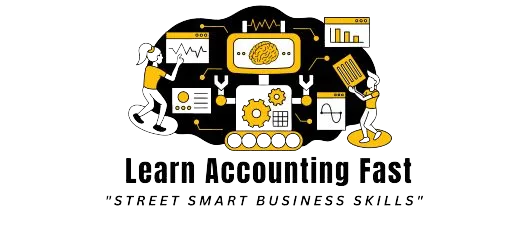Navigating Global Uncertainties A Guide for Young Entrepreneurs
In today's interconnected world, geopolitical events can reshape markets and impact businesses overnight. As a young entrepreneur, staying informed and agile is not just an advantage, it’s a necessity.
Here’s how you can keep your finger on the pulse of global developments and adjust your strategies effectively.
Stay Informed:
To thrive in a volatile global environment, the first crucial step is staying informed about international developments that could impact your business.
Setting up Google Alerts is an effective way to automate this process.
Choose keywords related to your business interests, major markets, and critical geopolitical regions.
This service delivers relevant news articles directly to your inbox, allowing you to stay updated without spending hours scouring the news.
It's a proactive way to ensure that you never miss critical updates that could influence your business decisions.
Regularly Assess the Political Climate:

Continuous assessment of the global political climate is vital for foreseeing changes that may impact your operations.
For more in-depth analysis beyond what daily news offers, resources like the Economist Intelligence Unit provide comprehensive reports and forecasts on global political and economic trends.
These services analyze a range of factors from economic policies and government stability to conflict risks, helping you understand potential market shifts.
Regularly accessing such insights can guide your strategic planning and risk management efforts, making your business more resilient against external shocks.
Leverage Real-Time Tools:
By following reliable news outlets, industry experts, and influencers in relevant regions, you can gain immediate insights into unfolding situations.
This can be especially crucial during crises or when rapid responses are needed.
Adjust Your Business Strategy:
Adaptability is key in handling international uncertainty.
Integrating the insights gained from news updates and in-depth political assessments into your business strategy is essential.
Engage in regular strategy sessions with your team to discuss potential impacts of the latest developments.
Employ scenario planning to prepare for various outcomes, such as geopolitical tensions leading to supply chain disruptions or market access issues.
This could involve exploring new suppliers, entering different markets, or reallocating resources to less volatile regions.
By preparing for multiple scenarios, you can ensure your business remains agile and can pivot quickly in response to new challenges.

Case Study 1: Toyota and the 2011 Thailand Floods
In 2011, Thailand experienced severe floods that disrupted many global supply chains, particularly impacting the automotive industry. Toyota, which had extensive operations in the region, faced significant disruptions.
Steps Taken:
Risk Assessment: Toyota had previously developed a robust risk management system that included mapping out supply chains and identifying critical suppliers.
Proactive Measures: Before the floods, Toyota had diversified its supplier base, which reduced its reliance on any single region. They also had alternative suppliers on standby.
Agility in Response: During the crisis, Toyota quickly shifted production to other regions temporarily and increased purchases from alternative suppliers outside the affected areas.
Long-term Adjustments: Post-crisis, Toyota further diversified it supply chain and invested in local infrastructure improvements to mitigate similar risks in the future.
This proactive and agile approach helped Toyota minimize disruptions and maintain production during a significant crisis.
Case Study 2: Starbucks in the Middle East
Starbucks operates in various countries, including politically volatile regions like the Middle East.
The Arab Spring in the early 2010s presented a series of political challenges.
Steps Taken:
Local Understanding: Starbucks' strategy includes a strong emphasis on understanding local markets deeply, which involves political, cultural, and social aspects.
Flexible Supply Chain: Starbucks maintains a flexible supply chain that can reroute supplies quickly in response to local disruptions.
Strategic Partnerships: In each region, Starbucks partners with local businesses that understand the local context better, which helps in navigating political issues.
Crisis Management Planning: Starbucks has crisis management plans that include both preventive measures and responsive strategies to ensure business continuity.
By leveraging these strategies, Starbucks has managed to sustain operations in the Middle East through various political upheavals, maintaining brand integrity and continuity of service.
These cases exemplify the importance of understanding local contexts, having a flexible and diversified supply chain, and implementing robust crisis management strategies.
Businesses that anticipate risks and prepare accordingly can manage geopolitical challenges more effectively, turning potential disruptions into opportunities for resilience and growth.
Conclusion:
Navigating the complexities of global markets requires more than just passive awareness.
It demands active engagement with current events and a flexible approach to business strategy.
By staying informed, regularly assessing the political landscape, leveraging real-time tools, and continuously adapting your strategy, you equip your business to manage risks effectively and seize opportunities in a dynamic global environment.
These detailed actions form a robust framework for young entrepreneurs to develop a proactive approach to business strategy in the face of global uncertainties, turning potential risks into opportunities for growth and innovation.
Now is the perfect time to invest in your greatest asset - YOUR BUSINESS AND FINANCIAL EDUCATION.
It's time to thrive in these trying times by taking advantage of this opportunity for personal growth.
Be the greatest you can be…
Join us, click the link below for short, sharp, simple video courses that give you confidence and street-smart business skills to succeed.
More to Explore
Accounting Best Practices for E-commerce Entrepreneurs
Running an e-commerce business requires precise financial management. Without a structured accounting system, cash flow issues, tax penalties...
Implementing AI on a Budget A Guide for Small Businesses
Artificial Intelligence (AI) is no longer just for big corporations with deep pockets.
Small businesses can now leverage AI tools .....
10 Secrets of Old
Money Families
It was a crisp autumn morning when Sarah first set foot in her
grandfather's study. The room smelled of leather and old books, with sunlight streaming through tall windows...
Integrating Blockchain Technology into Modern Accounting
This guide provides a detailed, step-by-step process for integrating blockchain into your accounting practices, enhancing transparency....
How to Use AI to Automate a Small Business Operation
Artificial Intelligence (AI) is no longer just for large corporations; small businesses can use AI tools to save time, reduce costs, and increase efficiency....
Cryptocurrency and Business Taxes: Advanced Strategies for Staying Ahead
Cryptocurrency is revolutionizing business and investment, but those who truly excel in this space know it’s not just about understanding the basics....
Disclaimer: The content shared on this blog and in these videos is for informational and educational purposes only. Despite my 30 years of experience as a business owner, I am not a certified financial advisor, accountant, or legal professional. The insights and tips shared are based on personal experiences and should not be taken as professional financial or legal advice. For financial, legal, or professional advice, please consult with a certified professional in the respective field. I disclaim any liability or responsibility for actions taken based on any information found in this blog or these videos.
Copyright Learn Accounting Fast - All Rights Reserved 2025









Facebook
Instagram
X
LinkedIn
Youtube